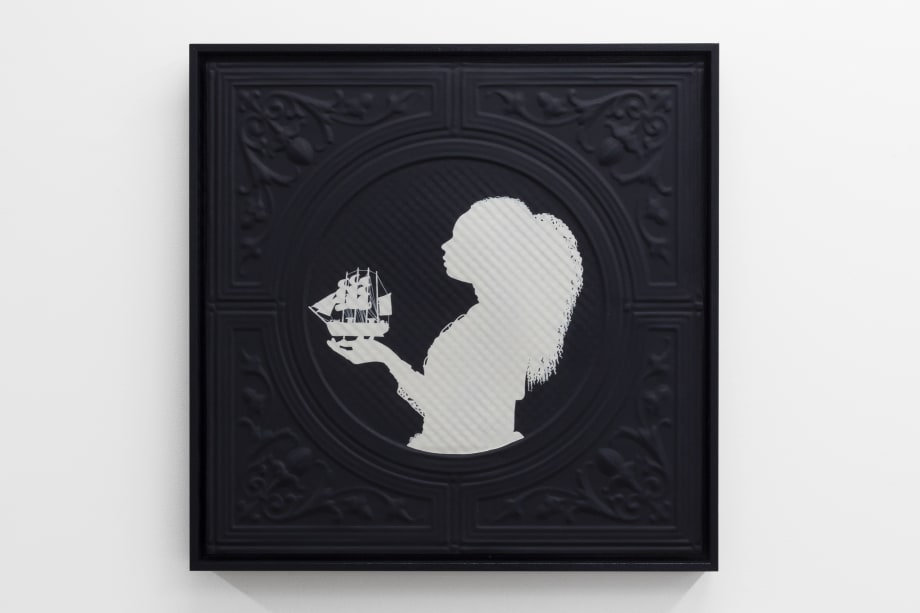In the rooms of our bodies is an extension of Jasmine Togo-Brisby’s ongoing explorations into the multifarious ways that marginalised histories are embedded within contemporary material culture.
Through her research driven practice, and working across various media, Togo-Brisby delves into her own personal history and that of the Pacific slave trade, which saw her great-great-grandparents taken from Vanuatu and transported to Australia under slave-labour policies employed by the Australian government, and where they were eventually acquired as house slaves for the Sydney Wunderlich family in 1899.
The Wunderlich family produced ornate, pressed-tin ceiling panels and architectural elements. Today the originals ceilings can be found in many buildings across Australia and Aotearoa New Zealand, including Wellington Town Hall, and are painstakingly preserved as heritage materials. In the preservation of Wunderlich ceilings, if a panel is damaged beyond restoration it is replaced with a readily available replica.
For Togo-Brisby, a fourth-generation Australian South Sea Islander, these panels are an enduring physical manifestation of a colonial legacy that provides stark contrast to the scarcity of records available for South Sea Islanders, who trace their roots to Australia through the slave-diaspora.
Originally from Queensland and now based in Pōneke, Togo-Brisby regularly incorporates imagery of three generations of her own family – with photographs or silhouettes of her mother, daughter, and herself rigidly posed with colonial props or objects – making visible the often invisible but enduring effects of intergenerational trauma.
When my great-great-grandparents were taken from Vanuatu, all that they took with them was held within their bodies. The first room they entered on their journey to the new and unknown land was the hold of a ship. All that is known, all that cannot be known, the unspeakable and intangible, was embodied within our ancestors and is embedded into our South Sea bodies. We are an archive. A thick text to never fully comprehend or transcribe. Written in a language that bends and warps backwards and forwards in time.
The notion of my body as an archive has never been more present. In the wake of the recent passing of my sister Mahla, my family and I are not only going through the process of grieving but also the process of making space to hold her within our bodies/archive. Our bodies pulse and push against the walls to create space to hold her within us, to carry her on the journey just as those who came before us did.
I’m interested in the experience of loss and legacy, and how we engage with archives: from the catalogues of slavery of the numbered and often nameless or renamed human bodies, to the catalogues of ceiling panels, meticulously numbered and treated with care. Replicated to ensure a legacy that will never die.
- Jasmine Togo-Brisby

